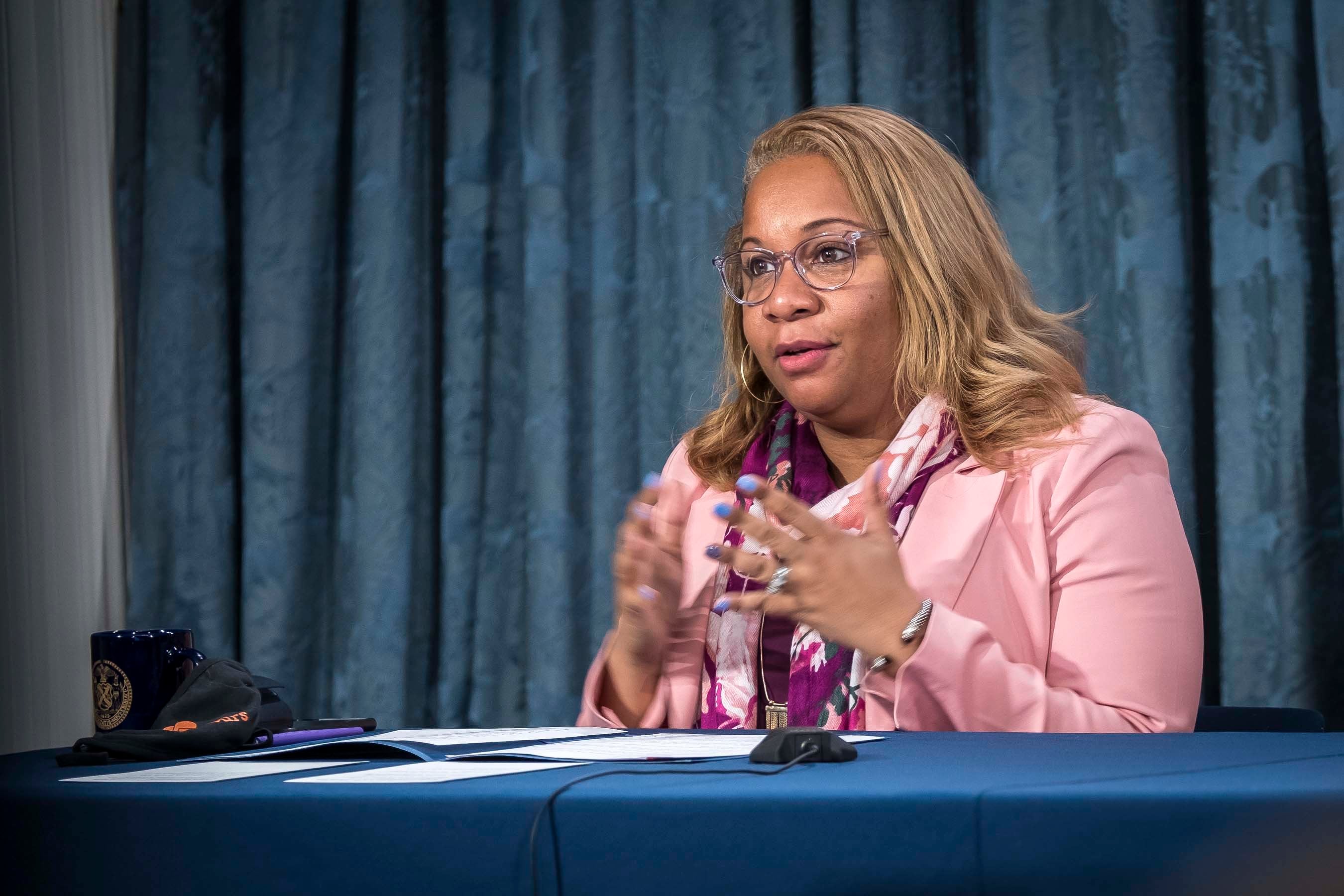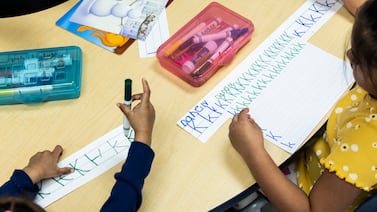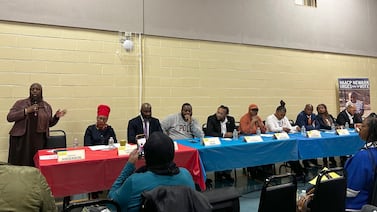Meisha Porter will step down as New York City schools chancellor when Mayor Bill de Blasio’s tenure comes to a close at the end of the year, she announced Wednesday morning.
Porter, who rose up through the ranks of city schools, stepped in to lead the nation’s largest school system in March following the sudden resignation of Richard Carranza, becoming the first Black woman in the position.
Her departure, which she announced on NY1, clears the way for Mayor-elect Eric Adams to select a new schools chief. He is expected to tap David Banks, a mentor to Porter and head of the Eagle Academy Foundation, which supports six all-boys public schools in New York and New Jersey. Adams has signaled that he will announce his pick for chancellor after he returns from an overseas trip on Dec. 8.
Porter, who has worked in the education department for more than two decades, will become the inaugural CEO of a new nonprofit called the Bronx Community Foundation next year. The organization describes itself as advocating for “social, economic, environmental and racial justice,” as well as access to “quality education,” in the Bronx — the borough where Porter worked most of her career.
“So many families in the Bronx, my family included — I raised my family in the Bronx — have depended on and relied on schools as our second home and our second community partnership, and I really look forward to working with schools to build out those partnerships,” Porter said on NY1.
In a statement, de Blasio described Porter as working “tirelessly and fearlessly” on behalf of students and highlighted their efforts to fully reopen city schools after the pandemic shuttered buildings.
“There is no doubt in my mind that she will bring the same determination and passion to her work serving Bronx families,” he said.
Some observers wondered if Porter would stay at the education department under Adams, though recent mayors have opted to appoint their own schools chancellor upon taking office. An education department spokesperson did not say whether Porter sought to keep her job or take another role under the Adams administration. In response to a similar question from NY1, Porter said: “I never looked for this job. And so I haven’t campaigned one day for this job. I’ve spent every single day in this seat, doing the job and what’s what I intend to do.”
Porter became chancellor during one of the most turbulent times in the school system’s history. The coronavirus pandemic had already upended in-person schooling for a year, with a majority of students learning remotely full-time — which not only exacerbated long-standing inequities in the education system, but also socially isolated many students. To help ease the transition back to school this year, Porter helped launch a universal summer school program that was widely embraced by many families despite a rocky start.
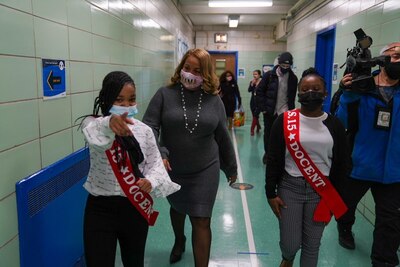
Porter was then charged with executing de Blasio’s goal of bringing the city’s roughly 1 million public school students back into buildings this school year. The administration largely achieved that goal, though nearly 2,800 classrooms — or about 4% of such spaces — have been temporarily closed so far this school year due to positive COVID cases. Even so, many educators report that both they and their students are happy to be back in the classroom, and just under 1% of students have tested positive for COVID since September, according to public data.
But the process was not without hiccups. There were legal battles surrounding the city’s vaccine mandate for educators — which Porter has said was one of the most challenging efforts of her tenure — followed by staffing shortages at some schools. There have also been busing delays, concerns about ventilation, and some parents opting to keep their children at home out of health and safety concerns — prompting some to be contacted by child protective services.
Her tenure also saw a historic infusion of federal and state money into New York City schools, resulting in billions of dollars in new investments. That includes providing every school with 100% of the funding they’re owed under the city’s Fair Student Funding formula and a $635 million “academic recovery” plan. Many advocates, however, were frustrated that more money wasn’t dedicated to other things, such as lowering class sizes, or that promised plans of extra services for students with disabilities were delayed.
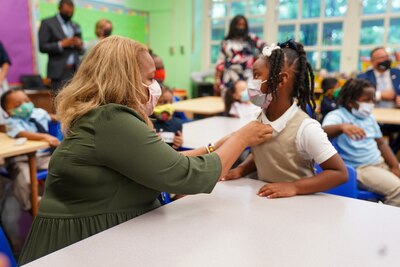
There are still some loose ends on Porter’s plate. Before departing at the end of the month, de Blasio and Porter have signaled they will announce middle and high school admissions policies, which have been disrupted by the pandemic and have yet to be announced for fall 2022.
Porter, a Queens native, rose from a community coordinator and teacher to leadership roles in the Bronx, including 18 years as a principal, superintendent and now, chancellor. Her appointment as the chief of city schools came with a plethora of praise from educators, parent leaders and elected officials who said she had a reputation for building trust with parents and students.
Her 10-month stint as chancellor did not afford her the opportunity to advance a complete policy vision of her own. But she was still a public face of high-profile initiatives, including the city’s efforts to vaccinate public school students. And unlike Carranza, who often criticized the district’s status as among the country’s most racially segregated, drawing attention to the mayor’s resistance to tackling the issue systemically, Porter largely hewed to the mayor’s talking points.
She was known to be a lighthearted presence at public events at schools or vaccine clinics. She often danced — once doing the electric slide during an announcement about electric school buses — or was playful with students on visits.
“For the first time in a number of chancellors, principals and superintendents are gonna feel like they have a friend, someone to talk to and someone who understands them,” Richard Kahan, the founder of Urban Assembly, who gave Porter her first teaching job, said when she was first appointed as chancellor earlier this year.
Alex Zimmerman and Carrie Melago contributed.

